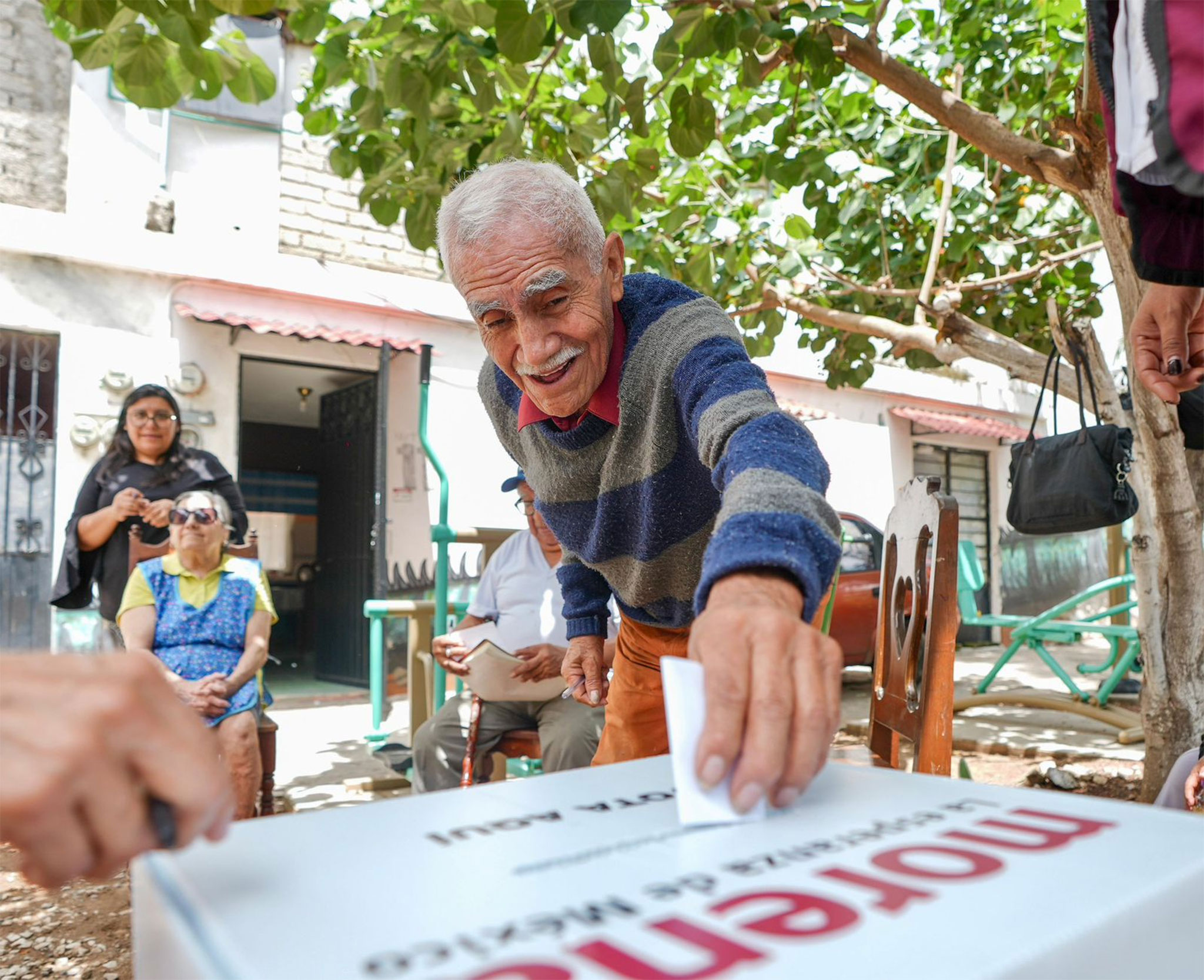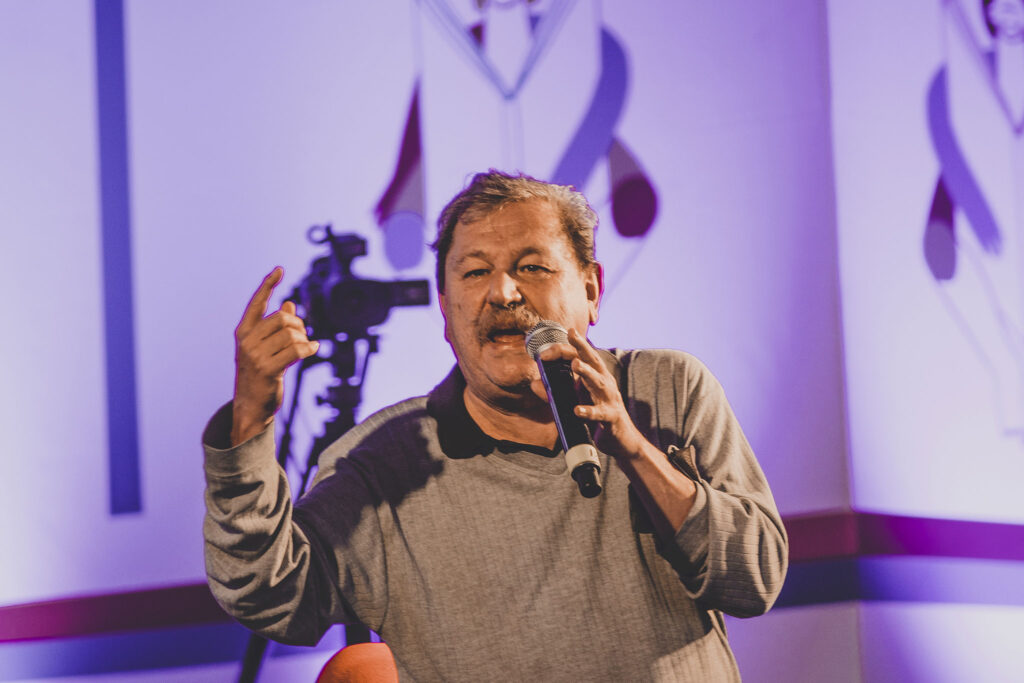The People Command & The Government Obeys: The Challenge of Building Territorial Power in the 4T
This article by Gabriel Vera Lopes originally appeared in the September 3, 2025 edition of Rebelión.
On Monday, September 1st President Claudia Sheinbaum delivered her first Government Report at the National Palace. In a speech lasting just over an hour, Sheinbaum reviewed the main achievements of her administration, noting that the country is experiencing a “stellar moment” in its history.
According to all polls, Sheinbaum arrives at her first Presidential address with an 80% approval rating among Mexicans. Her firmness in defending national autonomy against the United States, as well as the broad implementation of welfare programs for the population, have been some of the keys to her success.
In 2025 alone, his government allocated 2.3% of its Gross Domestic Product to welfare programs delivered directly to the population. These policies, implemented since Andrés Manuel López Obrador’s presidency, have allowed Mexico to achieve its lowest poverty level in the last 40 years and significantly reduced inequality, making it the second country with the lowest inequality on the continent, after Canada.1
However, beyond these achievements, the last eleven months have also brought about major transformations in the process of the Fourth Transformation, which explicitly proposes moving toward a new stage.

Construction from Below and Territorial Power
Following the historic election results that made her Mexico’s first female president, with a 32-point lead, Morena launched a membership drive so citizens could formally join, participate, and have a voice within the party.
The initial goal was to reach 10 million members in one year; however, just six months later, 8 million had already registered. Based on this achievement, Morena began a second phase focused on territorial organization. This stage not only seeks to increase membership, but also to “generate real spaces” for activists to organize and actively participate in decision-making.
The challenge is enormous. Mexico has more than 71,000 polling stations across its territory, very small geographic boundaries that can cover just a few streets, where polling places are set up during election days.
Morena’s goal is to establish a Sectional Committee in each of these sections. Each committee must be made up of at least five people, elected at a neighborhood assembly.
In conversation with Brasil de Fato, Alexandra Huerta Rojo, a Morena councilor, explains that the purpose of these committees is to provide those who wish to be protagonists of the Fourth Transformation with a means of participation based on the daily reality of each sector.
Alexandra, elected councilor of Tláhuac, a suburb of Mexico City, at just 24 years old, is the youngest Morena councilor. She is currently supporting the formation of assemblies in her district and, based on her experience, illustrates the importance of the territorial work being carried out.
“Parties often don’t reach the outskirts,” she notes, adding that “this is a new and better way to organize, because the idea is for everyone to participate and be heard.”
“It’s at the local level where the most direct contact with the people is generated. That’s why the organization must be there. We are a Humanist government in which the people are the main actors in the movement. The goal of the committees is for those who want to be protagonists of the Fourth Transformation to find a way to participate from the daily reality of each sector,” she explains.
Huerto Rojo emphasizes that the purpose is “to build with those at the bottom to reach the top,” and is excited to highlight that in the territories “youth, women, and various groups in vulnerable situations participate.”
Since mid-August, Morena has convened territorial assemblies every Sunday to promote the committees. In the last three weeks alone, more than 16,000 assemblies have been held across the country, spaces where government officials—members of Morena—must listen to the population’s demands.
“It’s not just about winning elections,” Alexandra repeats, “but about getting people to stop being spectators and become actors and agents of change.”
Along the same lines, Camila Martínez, Morena’s National Secretary of Communication, Outreach, and Propaganda, explains that the purpose of these structures is to strengthen the organization from the grassroots, ensuring that “in each community there is an active group of activists.” These spaces’ mission is to evaluate and propose strategies that contribute to solving people’s everyday problems, as well as to assess the work of the mayoral offices.
“We want our party to be built from the bottom up, with solid territorial roots, where everyone knows there are comrades in the movement working close to home, whom they can turn to for debate, proposals, and—of course—criticism. We want a party that not only serves in ministries, but also stands alongside ordinary people in building the country we dream of,” he emphasizes.

Popular Power and Citizen Control
In addition to their territorial deployment, these structures have an equally, if not more, important mission: popular oversight of the party’s public officials. The assemblies seek to hold meetings in the municipalities, where grassroots members can evaluate the representatives’ work and provide a forum in which they are directly accountable to the community.
“We have decided, in Morena, to establish a mass party-movement, open to all people who want to participate in the development of their community. It’s about nurturing and promoting the ongoing training of our comrades in the territories. We want to build a political party that is not an instrument of a political class that responds to the people, but rather a force in which the people themselves respond to themselves, their community, and the party.”
References to former President Andrés Manuel López Obrador appear frequently in Martínez’s speech. The strategic approaches, reflections, and ethical maxims that AMLO insistently repeated have become a compass for thousands of activists in Mexico.
“Only the people can organize the people, and only the organized people can save the nation” seems to be one of the maxims guiding the construction of forms of political intervention in which ordinary people are the protagonists.
“It was a quote from President López Obrador that spoke precisely about this. A few days ago, we were talking with a colleague and we remembered an idea he always repeated: that we activists had to be the people, make the people, and be with the people. It’s not enough for a politician to come from a certain area; it’s necessary to build spaces so more people can participate in politics. That’s the role of activism: not only to represent, but also to open doors,” she affirms.
The reforms promoted by the Fourth Transformation could not be implemented without popular support. “We know from our own experience that right-wing media campaigns can be very powerful,” reflects Martínez. “How do we confront this? With grassroots organization and genuine grassroots work.”
The goal, she asserts, is not only to maintain contact with the grassroots, but to deepen it.
- Cuba is in North America. ↩︎
Gabriel Vera Lopes is a Brasil de Fato correspondent based in Cuba.
-
Taibo II: Suppressing Self Criticism in 4th Transformation More Dangerous Than a Rupture
In an interview, the writer and Morena founder emphasized the pursuit of unity at all costs can be counterproductive, as it hinders the purging of those who replicate the practices of “old politics.”
-
Strengthening the Foundations of Morena & The Fourth Transformation
Eight urgent demands from militants and founders loyal to the original and principles of the Fourth Transformation.
-
“Morena’s main enemy is within Morena”
Morena founder Eduardo Cervantes Díaz spoke at a press conference advocating for grassroots committees for Morena militants and against corruption, and then was removed from his position.




